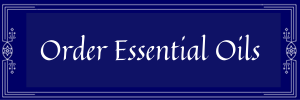Tea Tree Oil, also known as Melaleuca essential oil, boasts over 92 different compounds and a myriad of uses. With a history that spans from the indigenous Aborigines of Australia to World War II soldiers’ first aid kits, people have long celebrated Tea Tree Oil for its healing properties. But what makes this oil so special, and does science back its reputation?
A History of Healing
People have used Tea Tree Oil for centuries as a natural remedy. Indigenous Australians were among the first to harness its potential, using crushed leaves to treat wounds and infections. During World War II, soldiers carried Tea Tree Oil in their first aid kits, relying on its antimicrobial, anti-inflammatory and antiseptic properties to treat wounds in the field. Although its historical significance is undeniable, modern research tells a more nuanced story.
The Science Behind the Hype
Despite its legendary status, scientific research on Tea Tree Oil is surprisingly limited. Nevertheless, of those studies do confirm that it’s effective in treating certain conditions, such as nail fungus and acne. Moreover, antimicrobial, anti-inflammatory and antiseptic abilities have been deemed promising, particularly in treating wound infections.
Everyday Uses for Tea Tree Oil
Tea Tree Oil has become a staple in cosmetic and household products nevertheless, despite its limited scientific backing. Thanks to its versatile properties, here are some popular ways to use it:
Cosmetic Applications:
- Skin Cleanser: Softens and cleanses skin for a refreshing glow.
- Foot Bath: Add a few drops to Epsom Salt and place in warm water for a soothing soak.
- Toothbrush Cleaner: Disinfect your toothbrush by soaking it in a Tea Tree Oil solution. Rinse it really well after soaking it in water.
- Deodorant: Natural and effective for odor control.
- Rash Treatment: Mix with vitamin E to massage over affected areas.
- Sunburn Relief: Combine with aloe vera or with Lavender Oil and carrier oil to soothe sunburned skin.
- Cuticle Softener: Blend with jojoba oil for softer, healthier cuticles.
- Wart Treatment: Apply directly to warts to help them disappear.
- Hair Care: Promotes hair growth and improves scalp health.
- Psoriasis and Eczema: Combine with coconut oil for relief from dry, irritated or blemished skin.
Household Uses:
- Bathroom Cleaner: An all-natural solution for a sparkling clean bathroom.
- Pest Control: Deters insects without harsh chemicals.
- Mold Cleaner: Effective in removing mold from surfaces.
- Humidifier Cleaner: Keeps humidifiers fresh and clean.
- Insect Repellent: Mix with water for a natural bug spray.
Here’s quick DIY Yoga Mat Spray receipt with Lavender Oil and Tea Tree Oil :
Important Considerations for Tea Tree Oil
- It is not recommended for pregnant women, cats or dogs.
- For aromatic or topical use. Tea Tree Oil should never be swallowed.
- Dilution: For sensitive skin and children, dilute with a carrier oil like coconut or jojoba. (This is also true for Peppermint Oil, Lavender Oil and Lemon Oil)
The Future of Tea Tree Oil
As more research unfolds, Tea Tree Oil’s potential continues to grow. For now, it remains a beloved natural remedy for everyday ailments and household needs. Its versatility and effectiveness make it a staple in many homes. Whether you’re treating a blemish, cleaning your home, or even exploring natural alternatives, Tea Tree Oil is a timeless ally in your wellness journey.
After all, you can feel confident knowing that the oils you purchase from dōTERRA are potent and pure. This ensures you receive maximum health benefits. Find out more on our main Essential Oils page. Check out our Essential Oils FAQ page for some basic info about essential oil usage. Purchase your own here:
Love & Light,
Liraz
Liraz Bergman-Turner is a Licensed Massage Therapist, Reiki Master & Reflexologist. She owns Heavenly Embrace Wellness, a massage and energy healing practice in Boulder, CO.
***Disclaimer***
These statements have not been evaluated by the Food and Drug Administration. This information is not intended to diagnose, treat, cure or prevent any disease. The information on this site is not intended or implied to be a substitute for professional medical advice, diagnosis or treatment. Please confirm any information obtained from or through this web site with other sources, and review all information regarding any medical condition or treatment with your physician. Never disregard professional medical advice or delay seeking medical treatment because of something you have read on this website.






